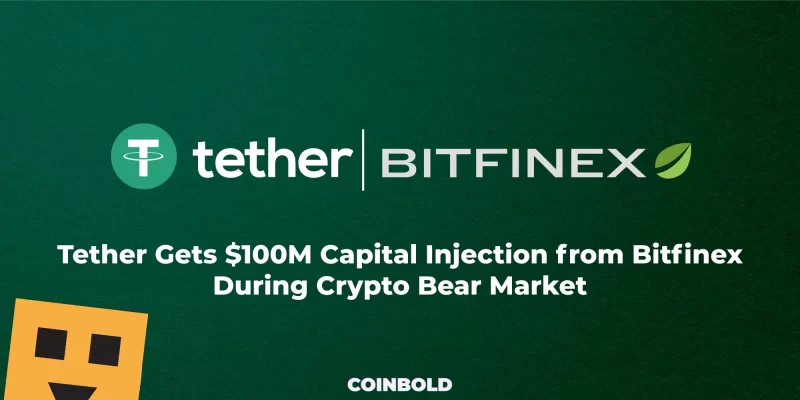Major stablecoin issuer Tether recently received a $100 million cash infusion from cryptocurrency trading firm Bitfinex amid ongoing crypto market doldrums.
On October 2, 2023, Bitfinex transferred $100 million to Tether in two separate $50 million installments, according to on-chain data.
At around 9:43 a.m. UTC, the first tranche, valued at $50,039,125, was paid, and a few minutes later, the second tranche, valued at $50,038,875 was given.
The capital injection comes as Tether stablecoin reserves have declined significantly over the past year, falling from a peak of nearly $83 billion in March 2022 to under $66 billion currently.
Tether Reserves Dropping Amid Crypto Winter
Tether’s USDT token dominates the stablecoin market but has faced questions over its reserves and whether they are sufficient to maintain the 1:1 USDT-dollar peg.
Data from CryptoQuant shows stablecoin reserves have plunged since November 2022, coinciding with cascading collapses of major crypto firms like FTX and Celsius that drove broader market sell-offs.
But Tether reserves also hit an all-time high in 2021 as investors poured capital into USDT amid ballooning crypto markets. The subsequent decline illustrates diminished inflows during the ongoing “crypto winter.”
Some analysts believe the Bitfinex transaction may have aimed to prop up Tether’s reserves after large outflows. But Tether claims the funds constitute a routine business deal.
Regulatory Pressure Intensifies on Stablecoins
Tether’s injection comes as stablecoins face growing scrutiny from financial regulators worldwide, including a recent report from the U.S. Treasury highlighting risks stablecoins pose to financial stability.
But Tether has defended the resilience of its reserves while attempting to meet increasing compliance standards, including settling charges with the NY Attorney General’s office in 2021.
With exchanges and lenders collapsing, Tether maintains its stablecoin has weathered the storm. The Bitfinex cash infusion may help solidify reserves amid choppy seas for crypto. But regulators continue pushing for tighter oversight of these dollar-pegged digital assets.


